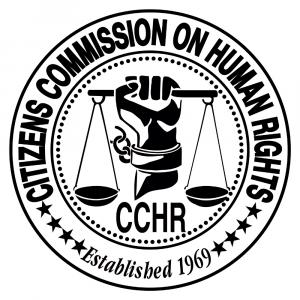Post-traumatic stress is a normal reaction to an abnormal environment, not a mental disorder, says a U.S. Army psychologist with a 34-year military career of treating veterans.

Prescriptions for psychiatric drugs for military personnel increased seven-fold from 2005-2011, more than 30 times the rate among the civilian population; by 2013, one in six American service members was taking at least one psychiatric drug, and suicides
High rate of veteran suicides has been linked to the high rate of veterans taking psychotropic drugs, especially antidepressants.
WASHINGTON, DC, US, June 22, 2023/EINPresswire.com/ — Post-traumatic stress disorder (PTSD) refers to the stress felt after experiencing a traumatic event, but the term also characterizes that stress as a psychiatric “disorder” that may be treated with psychotropic drugs – drugs that carry the risks of suicidal thoughts and actions. These risks are especially relevant to former service members in light of the stubbornly high rate of veteran suicides.
Colonel Bart Billings, PhD, a retired U.S. Army clinical psychologist with a 34-year military career of treating veterans for stress, disagrees with the psychiatric term and the treatment with psychotropic drugs.
In an interview, Dr. Billings explains that 99% of those who go into combat experience post-traumatic stress and that this stress is “a normal reaction to being in an abnormal environment.” He goes on to say, “If you give them time to normalize themselves…, then the post-traumatic stress dissipates and they get back to living their normal lives.”
Dr. Billings says that in all his years of practice in the military with veterans experiencing post-traumatic stress, he never once had to prescribe a mind-altering psychiatric drug.
“I explained to the psychiatrists and psychologists,” he continues, “you really shouldn’t be medicating them because they have a normal brain, and once you medicate these people, what happens is it’s much, much harder to work with them because now you’re working with someone whose brain functioning is chemically, physiologically changed by the medications.”
The prescriptions for psychiatric drugs for military personnel soared from 2005 to 2011, increasing sevenfold over the period, according to the U.S. Department of Defense – more than 30 times the rate among the civilian population. Already by 2013, the Military Times reported that one in six American service members was taking at least one psychiatric drug. At the same time, military suicides were rising dramatically.
The high rate of suicides continued. The 2022 National Veteran Suicide Prevention Annual Report, issued by the U.S. Department of Veterans Affairs (VA), reported an average of 17 veteran suicides per day during 2020. The rate of veteran suicides measured per 100,000 population was 57% higher than the rate of non-veteran adult suicides.
The VA’s suicide rate per day has been challenged by a veteran suicide prevention organization, America’s Warrior Partnership, whose own analysis suggests the rate should be at least 44 per day, or 2.4 times higher than the VA’s reported rate. [1]
In response to a Freedom of Information Act (FOIA) request filed in 2021 by the Citizens Commission on Human Rights (CCHR) International, the Veterans Health Administration revealed that in 2019, 4.2 million veterans were taking psychiatric drugs. Some 1.75 million (41%) of them were prescribed antidepressants, a typical treatment for PTSD, as well as depression.
The FDA has required a black box warning, its most stringent warning, on antidepressant labels to alert users to the increased risk of suicidal thoughts and actions in those under the age of 25, an age range that includes many of active service members and veterans who have taken their own lives.
CCHR has long advocated for the warning to be expanded to include all adults, based on empirical evidence. Research has found that SSRI and SNRI antidepressants double the risk of suicidality and violence in adults. [2]
To address the risks of psychiatric drugs as mental health treatment given to our active-duty military and veterans, CCHR produced its acclaimed documentary, Hidden Enemy: Inside Psychiatry’s Covert Agenda. It features interviews with more than 80 experts, soldiers, and veterans and presents evidence linking the rising number of psychiatric drug prescriptions with military suicides and sudden deaths. [3]
Because military psychiatrists have consistently failed to prevent military and veteran suicides, Dr. Billings says they should be fired. “In any other organization, …if you constantly fail, …you get fired,” he says and then asks, “Why has not psychiatry in the military been relieved of their duties?”
The Citizens Commission on Human Rights continues to raise public awareness of the risks of serious side effects and withdrawal symptoms from antidepressants and other psychiatric drugs, so that consumers and their physicians can make fully informed decisions about starting or stopping the drugs.
CCHR recommends a complete physical examination with lab tests, nutritional and allergy screenings, and a review of all current medications to identify any physical causes of depression or other unwanted mental and emotional symptoms, which might otherwise be misdiagnosed as a psychiatric disorder and incorrectly treated.
WARNING: Anyone wishing to discontinue or change the dose of a psychiatric drug is cautioned to do so only under the supervision of a physician because of potentially dangerous withdrawal symptoms.
The Citizens Commission on Human Rights was co-founded in 1969 by members of the Church of Scientology and the late psychiatrist and humanitarian Thomas Szasz, M.D., recognized by many academics as modern psychiatry’s most authoritative critic, to eradicate abuses and restore human rights and dignity to the field of mental health. CCHR has been instrumental in obtaining 228 laws against psychiatric abuse and violations of human rights worldwide.
The CCHR National Affairs Office in Washington, DC, has advocated for mental health rights and protections at the state and federal level. The CCHR traveling exhibit, which has toured 441 major cities worldwide and educated over 800,000 people on the history to the present day of abusive and racist psychiatric practices, has been displayed at the Congressional Black Caucus Foundation Annual Legislative Conference in Washington, DC, and at other locations.
[1] https://e55c5558-502f-457d-8a07-a49806f5ff14.usrfiles.com/ugd/e55c55_1cd5b99bea734bb295762263a003e767.pdf
[2] https://pubmed.ncbi.nlm.nih.gov/27729596/
[3] https://www.cchr.org/documentaries/hidden-enemy/
Anne Goedeke
Citizens Commission on Human Rights, National Affairs Office
+1 202-349-9267
email us here
Visit us on social media:
Facebook
Colonel Bart Billings, Psychologist—Help our Veterans, Don’t Label & Drug Them
![]()
Originally published at https://www.einpresswire.com/article/640801858/ptsd-awareness-month-traumatic-stress-should-not-be-treated-as-a-psychiatric-disorder-long-time-army-psychologist-says




